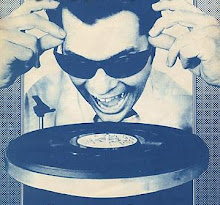 Many people, including me, were enjoying MP3 players long before "iPod" became synonymous with any portable device that plays compressed digital audio files. My first player was a CD clamshell player-sized unit from Creative Labs. At the Tom's Hardware website I quickly learned how to replace its original 20MB harddisk with a drive having twice that capacity. And it being a first-generation device not without an occasional problem, from eBay I was able to buy inexpensive spares to keep my unit—and those of friends—functioning.
Many people, including me, were enjoying MP3 players long before "iPod" became synonymous with any portable device that plays compressed digital audio files. My first player was a CD clamshell player-sized unit from Creative Labs. At the Tom's Hardware website I quickly learned how to replace its original 20MB harddisk with a drive having twice that capacity. And it being a first-generation device not without an occasional problem, from eBay I was able to buy inexpensive spares to keep my unit—and those of friends—functioning.Anyone who knows me knows that I'm not an Apple fan, primarily because the company has long had a policy of über-control over anything that bears the company brand. While that has certain advantages in relation to computer operating systems, it doesn't do much for those given to customization. There are other reasons, too, why there is a community of like-minded folks who won't have anything to do with Apple, just as there are those who aren't fond of Microsoft. But back to MP3 players...
The Anything But iPod website is run by like-minded individuals; I've been a fan of this website for years. As the name implies, everything here is about all of the other personal media players (PMPs) on the market. For example, check out their MP3 Player Buyer's Guide. Anything But iPod dedicates itself to PMP news, reviews of players and ancillary gear such as headphones and amplifiers, and even hardware hacks for the do-it-yourselfer.
Back in the good ol' days, there were two things that excited me most about listening to great radio stations such as Detroit's WABX (the station that glowed in the dark). The first was their dedication to playing music from multiple genres in a seemingly random, but well-coordinated manner (this is what Radio Paradise does on the Web). Today just about all PMPs have random—or shuffle—capability, and it's rare that I ever switch to sequential playback mode.
 The second feature—crossfading—seems to be far more elusive to most PMP manufacturers. Known as a segue in my own radio days, this is how 'ABX would paint a musical dreamscape, perhaps starting with a selection from Paul Horn's Inside the Taj Mahal, blending into a portion of Peace Two from John McLaughlin's My Goal's Beyond, into Lower Egypt from Pharoah Sanders' Tauhid album, and concluding with a portion of an early Pink Floyd instrumental.
The second feature—crossfading—seems to be far more elusive to most PMP manufacturers. Known as a segue in my own radio days, this is how 'ABX would paint a musical dreamscape, perhaps starting with a selection from Paul Horn's Inside the Taj Mahal, blending into a portion of Peace Two from John McLaughlin's My Goal's Beyond, into Lower Egypt from Pharoah Sanders' Tauhid album, and concluding with a portion of an early Pink Floyd instrumental.Switching to an HP Rx3715 pocket PC (PPC) that I had purchased as a glorified remote control for my home entertainment system, it soon became my PMP of choice with the addition of Conduits Technologies' excellent Pocket Player application. Although not as adventuresome as having "Air Ace" Dave Dixon hand-select audio segments in his unique style, this was a great answer to my desire for MP3 crossfading! (I might still be enjoying this unit had not its headphone jack gerfritzen das springenwerk).A good segue would...build an idea just as a writer would build on a compositional theme...The FM free-form DJ was carefully selecting each record to...[build] on emotions or themes…
David Benders, WBFO Program Director
Enter Rockbox. All open-source code, a dedicated group of hackers (hackers = good, crackers = bad) have created numerous, free downloadable firmware alternatives for many PMPs, such as the first-generation Sansa series players. And guess what? One of the key features of Rockbox is the ability to crossfade tracks. Heck, they even have some firmware replacements for selected iPod models!



